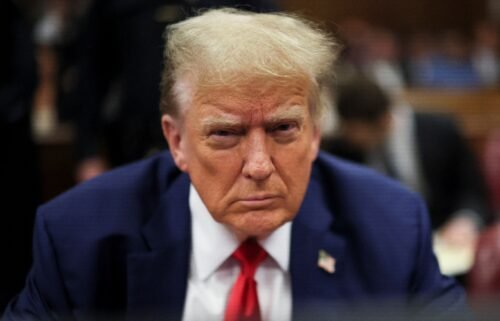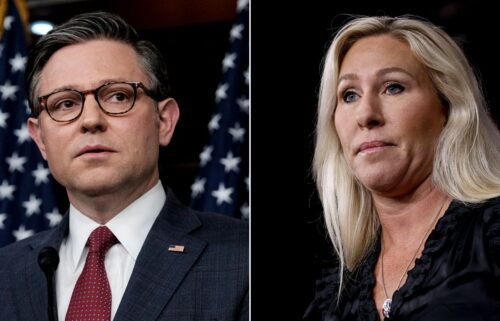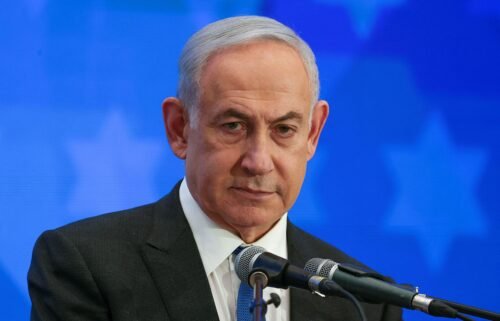Blinken says talks with Russia on Ukraine crisis need to be a ‘two-way street’ to be successful

By Kylie Atwood, Jeremy Herb and Michael Conte, CNN
Secretary of State Antony Blinken said Friday that progress can be made during next week’s diplomatic talks between US, European and Russian officials, but that it had to be a “two-way street” with Russia deescalating its aggression toward Ukraine.
Speaking following a meeting with NATO foreign ministers Friday, Blinken reiterated that the US and its allies were prepared to address any “legitimate concerns” Russia had about NATO’s actions if Russia reciprocated.
But Blinken accused Russia of attempting to “draw us into a debate about NATO” to misdirect from Russia’s buildup of forces near Ukraine’s border.
“Moscow is simultaneously driving the false narrative that NATO is threatening Russia, that NATO plans to station military infrastructure in Ukraine to stir conflict with Russia, that NATO swore after the cold war not to admit countries in Eastern Europe, and that NATO has broken those promises,” Blinken said at a news conference at the State Department. “Each of those claims is false.”
Blinken also said that the idea of Ukraine as the aggressor — which Russia has pushed — is “absurd.”
Blinken said that Russia currently has “nearly 100,000 troops today” built up “on Ukraine’s border” and has “plans to mobilize twice that number on very short order.”
The NATO Foreign Ministers meeting on Friday was a chance for the US and its allies to coordinate and demonstrate unified opposition to Russian aggression towards Ukraine ahead of what’s expected to be a week of intense diplomacy, a US official and two European officials explained.
A second US official explained that the sequencing of diplomacy with Russia next week — with US-Russia talks first, NATO talks with Russia second, and the Organization for Security and Cooperation in Europe (OSCE) talks with Russia last — was very deliberate. The order of events will allow Deputy Secretary of State Wendy Sherman, who leads the bilateral talks for the US side, to take the temperature of the Russian approach early on in the week and inform allies about what was shared in those initial conversations so that they can develop a game plan together.
While US and European officials continue to press that Russia cannot be rewarded for their military buildup — and that the country must deescalate the situation with Ukraine before anything else can happen — they also privately acknowledge that Russia will need an off-ramp, US and European officials told CNN.
But creating an offramp is tricky, the officials said, because it will need to be something that Russia can herald at home as a win but also something that does not actually award Russia. One area to watch is the possibility of the US moving heavy weaponry that it has in Poland further West given Russian sensitivities about its borders, one European official said.
NATO Secretary General Jens Stoltenberg, who also spoke Friday after the NATO meeting, said that the alliance welcomed Russia’s willingness to “come to the table and talk” but was prepared for “the possibility that diplomacy will fail.”
Blinken reiterated on Friday that the US was prepared to dole out “massive consequences,” including new economic measures, if Russia’s military buildup on Ukraine’s border continues. Biden administration officials, however, are still weighing how the US would penalize Russia if it invades Ukraine.
Kazakhstan unrest
Next week’s talks are occurring amid the backdrop of unrest in Kazakhstan, where the country’s leader — with the help of Russian forces — has tamped down on protests that turned violent.
The situation has the potential to complicate the upcoming talks, though so far White House officials say the Kazakhstan violence will not delay or otherwise change the three sets of talks set to begin in Geneva on Monday.
Blinken said Friday that the US remains “very concerned about the ongoing state of emergency” in Kazakhstan and has questions about the country’s request for peacekeeping forces from the Collective Security Treaty Organization, an alliance of former Soviet states that includes Russia.
“It would seem to me that the Kazakh authorities and government certainly have the capacity to deal appropriately with protests, to do so in a way that respects the rights of protestors while maintaining law and order,” Blinken said. “So, it’s not clear why they feel the need for any outside assistance.”
Blinken said he hoped the Kazakh government to address “fundamentally economic and political” problems that he said have led to the protests.
His remarks come after the Russian government said that Russian President Vladimir Putin discussed the situation in Kazakhstan with CSTO leaders following the arrival of Russian CSTO forces in Kazakhstan.
Blinken said that US was not conflating what’s happening in Ukraine and Kazakhstan, though he added, “One lesson of recent history is that once Russians are in your house, it’s sometimes very difficult to get them to leave.”
The-CNN-Wire
™ & © 2022 Cable News Network, Inc., a WarnerMedia Company. All rights reserved.
CNN’s Kevin Liptak contributed to this report.



